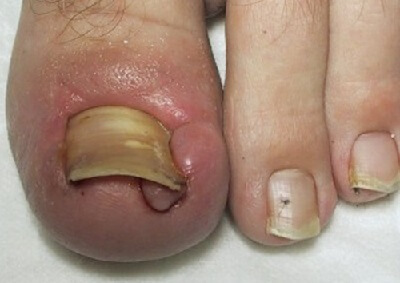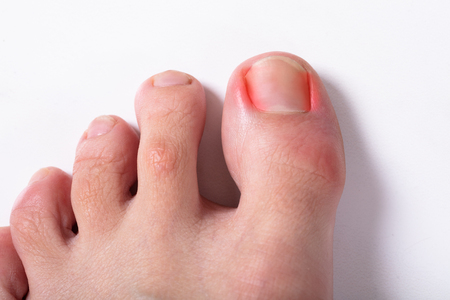Ingrown Toenails Caused by Inflammation

Ingrown toenails are common problems that affect the toes. Overcutting the nails or repeated cutting can worsen the problem. Ingrown toenails can be painful and require treatment from a foot and ankle surgeon. The condition is treatable and is usually treatable with oral antibiotics. However, if the infection is severe, it may require surgery. Your foot and ankle surgeon will remove the ingrown nail in two ways. The first way is to cut off part of the side border of the toenail. If it is too deep, the surgeon will cut the entire nail.
You can also try putting packing on the ingrown toenail. The packing should be made from cotton or waxed dental floss. You should change the packing every day. If the infection persists, you should visit your doctor. You may need surgery or antibiotics. Ingrown toenails caused by inflammation can be dangerous if not treated right away. If you notice any of these symptoms, seek medical attention as soon as possible.
The first step in treating an ingrown toenail is to find out what causes the problem. It can be caused by wearing shoes that don’t fit correctly. The inside of your shoe can slide up, causing the toenail to become ingrown. If you are a runner, the problem can be especially severe, as the side of your shoe is more likely to hit the ground. High-heeled shoes place excessive pressure on your toes, causing a worse condition for your toenail. Changing your shoes can help you avoid further infections and pain.
To avoid the pain and pus associated with an ingrown toenail, you should avoid wearing tight, pointed-toed shoes. If your symptoms persist, see your physician for a proper diagnosis. If the infection is too severe, your doctor may need to perform surgery. If the infection is severe, you should try home remedies first. If you notice an increased risk of an ingrown toenail, your doctor can prescribe an appropriate medication.
If the ingrown toenail is caused by a nail, a doctor can perform a surgical procedure. This can help you avoid the pain and ingrown toenail. You may also try home remedies to treat your ingrown toenail. If the pain persists, consult a doctor. If the infection is severe, surgery may be the only option. When you have a severe case, you may need to see a foot and ankle surgeon.

If you suspect you have an ingrown toenail, see your doctor for a diagnosis. This may be due to a nail infection or toe problems. Your doctor may recommend medication for ingrown toenails or suggest home treatments for you. It’s important to avoid pressure on your toes and wear socks that won’t irritate your feet. Even the slightest discomfort should be eliminated by a foot and ankle orthopedist.
You can also use a piece of cotton wool to separate the ingrown toenail from the toes. Ingrown toenails can be very painful and even numb your toes. Your doctor will recommend the best treatment for your particular case. If you suffer from ingrown toenails, be sure to see a doctor. If you have diabetes or vascular problems, it is especially important to avoid high heels.
Young people are at risk for ingrown toenails because they tend to sweat more than average adults. Feet are also softer at this stage of life, and their claws are thicker, meaning they are more prone to splitting. As a result, they may be at greater risk of ingrown toenails. If you are experiencing an ingrown toenail, you should take action immediately. You will need to see a doctor and เว็บไซต์นี้
if the condition persists or becomes chronic.
If you’re concerned about your child’s ingrown toenails, it’s important to see a doctor as soon as possible. While some treatments you can do at home are effective, you may need to see a doctor if the condition persists or gets worse. You may need to undergo surgery to fix an ingrown toenail. You can try several home remedies before you see your doctor.
